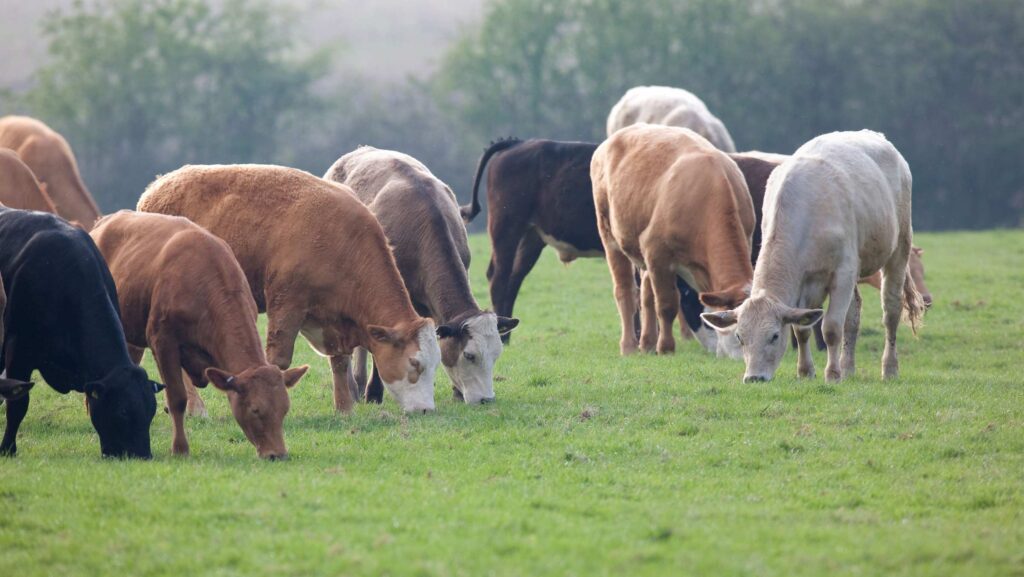Sustainability index needed to aid ‘more from less’ agenda
 © Tim Scrivener
© Tim Scrivener Designing a new Sustainable Efficient Production index that can help policymakers and food producers track progress towards more environmentally friendly food production is key to improving the nation’s food security.
That was the verdict of a recent roundtable meeting of industry experts, hosted by the All-Party Parliamentary Group on Science and Technology in Agriculture as part of its 30:50:50 project.
See also: Farming policies ‘must support increase in food production’
The project was launched at the start of this year and seeks to encourage a 30% increase in domestic food production with a 50% lower environmental footprint by 2050.
The group is concerned that current domestic policy may be taking UK agriculture in the opposite direction, with food production shrinking, both for crops and livestock.
It believes Defra’s “land-sharing” approach (where environmental measures occur in the same fields as food production) will further hit domestic output, increasing dependence on imports.
It advocates a “land-sparing” approach, suggesting about 60% of farmland should be used for high-yield farming, 25% for natural habitat and 15% for low-intensity farming.
Three-step approach
The 30:50:50 vision encompasses a three-step plan – the first being to devise a Sustainable Efficient Production (SEP) index, measuring greenhouse gas emissions, land use, water use and soil/water quality, expressed per unit of output.
Kicking off the roundtable, group chairman George Freeman, MP for Mid Norfolk, said the UK had a chance to show the rest of the world “what good looks like”.
Establishing a sustainability index would help policymakers recognise the steps food producers are making to protect the environment by harnessing technology, and enable consumers to make more informed choices at the checkout.
Nigel Moore of plant breeder KWS supported the urgent need for an approach based on real measurement. Any metric would have to be “simple, comparable and trustworthy” to be communicable and able to “move minds”, he said.
Individual sectors
Others agreed that it would be best to have an SEP index for individual sectors of agriculture, rather than an all-encompassing “mass”.
This was especially true for the livestock sector, where different factors were likely to influence productivity improvements for different species.
In relation to cattle, the UK’s dairy sector was considered to be world-leading, but the beef sector was lagging behind. UK pig production was seen as highly efficient, but also very vulnerable to the threat of disease.
And the poultry sector was now less sustainable in terms of resource use and environmental impact per kilo of meat after producers had voluntarily reduced stocking rates to meet supermarket welfare expectations.
These issues all pointed to the need for consistent, meaningful metrics to communicate the sustainability impact of different food choices, as well as any unintended consequences.
Criteria
Ian Mace, head of policy at Associated British Food, said it was important to be clear where in the supply chain sustainability criteria were being measured – at the farm gate or at the food production level.
Either way, Mr Mace questioned the ability of agriculture to achieve a 30% increase in production without increasing emissions without very significant productivity increases.
He also suggested convincing consumers of the benefits of more intensive farming would be challenging.
Louise Sutherland, director of Ceres Agri-Tech in Cambridge, said it was important that any index had the right starting point, so that those producers who had already made gains in their sustainability, for example in the horticulture sector, had their achievements recognised.
Call for evidence
The All-Party Parliamentary Group on Science and Technology in Agriculture is seeking industry feedback on its 30:50:50 vision, in particular from those in the farming, business and research communities who are already delivering “more from less”.
Views on whether government policy is helping or hindering this agenda are also welcome.
Written responses should be sent to daniel.pearsall@frontfoot.uk.com by 22 July.
